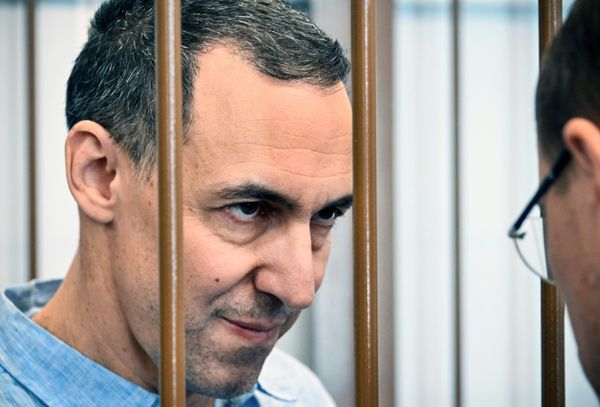The Australian share market lost its gains in afternoon trade, while consumer confidence has been dented by the spread of the Omicron variant of COVID-19.
After a good start, the market reversed course, with healthcare, utilities, industrials, banks and consumer firms weighing on shares.
Limiting the losses were miners, real estate stocks, communications firms, technology and oil and gas companies.
The All Ordinaries index fell 0.05 per cent, to 7,736, while the ASX 200 index dipped 0.1 per cent, to 7,409.
Virgin Money (-3.5pc), bookmaker Pointsbet (-3.5pc), and buy-now-pay-later firm Zip (-2.9pc) fell the most on the ASX 200 index.
Battery materials firm Novonix (+6.4pc) biotech Imugene (+7pc) and lithium miner Liontown Resources (+6.3pc) made gains.
Online fashion marketplace firm Redbubble fell after a disappointing trading update.
Redbubble's shares dropped 22 per cent, to $2.32.
It said marketplace revenue fell 18 per cent for the first half of 2022, compared to the same time in 2021.
And it expects annual revenue to fall as well.
Oil refiner Ampol expects to see the biggest quarterly revenue at its Lytton Refinery in Brisbane in more than four years thanks to higher fuel prices.
That means it does not expect to receive any federal government subsidies, which were put in place to keep Australian oil refineries open.
Ampol shares rose 2.4 per cent, to $31.27.
COVID-19 hits Rio Tinto iron ore
Rio Tinto said iron ore production dropped last year because of labour shortages in Western Australia due to border closures, cultural heritage management, above-average rainfall, and delays in new projects.
Limitations on travel meant the company could not conduct pre-delivery quality assurance and control at international steel and equipment manufacturers.
Shipments fell by 3 per cent in 2021, to 321.6 million tonnes.
They fell by 5 per cent over the December quarter.
The company expects iron ore shipments this year of between 320 and 335 million tonnes.
But it warned there could be more disruptions caused by COVID-19, worker shortages, and supply chain delays.
The big miner said ongoing rehabilitation works at Juukan Gorge were on schedule after Rio destroyed sacred caves at the site in 2020.Rio said the relationship with the traditional owners, the Puutu Kunti Kurrama and Pinikura (PKKP), was "constructive and considered" and an agreement for the co-management of country and an appropriate remedy for the destruction of the Aboriginal sacred site was "substantially progressed".
Rio Tinto shares fell 0.4 per cent to $109.65.
JB Hi-Fi update
Electronics retailer JB Hi-Fi said unaudited half-year profit dropped 9.4 per cent to $287.9 million.
But it said sales momentum was strong during the first half of the financial year with continued demand for consumer electronics and home appliance products.
Online sales rose by nearly two-thirds from the same time last year, but overall sales slipped 1.6 over the quarter.
Chief executive Terry Smart said the company's 13,000 workers had done an "incredible job" despite the challenges of COVID-19.
"We are pleased to report strong sales and earnings for HY22," he said.
JB Hi-Fi gained nearly 7 per cent, to $49.84.
The Australian dollar slipped 0.25 per cent, to around 71.92 US cents, by 4:40pm AEDT.
Consumer confidence slumps
The Omicron COVID-19 variant has hit consumer confidence, according to ANZ and Roy Morgan.
Their measure of consumer confidence fell 7.6 per cent last week to 97.9, the lowest level since October 2020, as Omicron surged across Australia and facilities came under immense strain.
That was lower than during last year's lockdowns when the Delta variant surged.
All the survey's subindices fell including current and future financial conditions.
Nearly one in five respondents expected to be worse off by this time next year.
ANZ head of Australian Economics, David Plank, said the index level of 97.9 was the weakest January result since 1992, when the Australian economy was experiencing rising unemployment.
ANZ said spending had continued to fall because of the spread of Omicron, with a drop of 27 per cent over the first half of January, compared to the first half of December.
Spending was also lower on eating out.
Omicron hit to economy
CBA credit and debit card data indicated that spending has dropped sharply on services over the past few weeks.
Commonwealth Bank economist Gareth Aird said the large number of COVID-19 cases is hurting the employment market, with an estimated 1 million people in isolation, and reduced spending on goods and services.
That means many businesses have been forced to close, or reduce capacity and opening hours.
He has slashed his growth forecast for the first quarter of 2022 from 2.3 per cent to just 1 per cent.
"Our working assumption is that more policy support will be forthcoming, particularly stimulus that is targeted towards businesses most adversely impacted by the surge in COVID cases and isolation requirements."
Mr Aird said he expected the economy to snap back in the second quarter of 2022.
Bank of Japan keeps rates negative
The Bank of Japan kept official interest rates on hold as expected at -0.10 per cent, but lifted its inflation forecasts.
One board member voted for the policy rate to be lowered further to support business.
The Japanese central bank maintained its pledge for further stimulus if needed, including lower rates, despite rising global inflation.
Negative interest rates encourage lending because customers have to pay a fee to deposit their money.
The Bank of Japan raised its inflation forecast to 1.1 per cent for the year starting in April, from its previous forecast of 0.9 per cent that is as energy costs rise.
The Nikkei 225 index fell 0.2 per cent, to 28,265.
China's economic warning
Chinese President Xi Jinping has warned nations not to slam the brakes on economic growth.
Mr Xi told a virtual meeting of the Davos World Economic Forum that the world economy was emerging from the depths of the pandemic, but it still faced many constraints.
He said global industrial and supply chains have been disrupted and commodity prices continue to rise.
Mr Xi also said the risk of inflation was increasing.
But with the US central bank flagging several interest rises this year amid surging inflation, Mr Xi warned major economies about withdrawing coronavirus stimulus.
"They would present challenges to global economic and financial stability, and developing countries would bear the brunt."
He said countries should strengthen policy coordination and prevent the world economy from dipping again.
Yesterday China's central bank cut interest rates on medium term loans and the 7 day reverse repo rate.Commodites
Oil prices increased with Brent crude putting on 1 per cent to $US87.34 a barrel.
An attack on oil facilities in Abu Dhabi, claimed by Yemen's Houthi rebels, left three dead and six wounded.
Authorities believe the attack was carried out by drones.
Spot gold eased from its overnight high to $US1817.99 an ounce.
European shares gained ground with healthcare stocks lifted by takeover activity.
The STOXX 600 index rose 0.7 per cent as healthcare firm GlaxoSmithKline jumped.
In London, the FTSE 100 increased 0.9 per cent to 7,611, the DAX in Germany put on 0.1 per cent to 15,934, while the CAC 40 in Paris rose 0.8 per cent to 7,202.
(ABC/Reuters)







